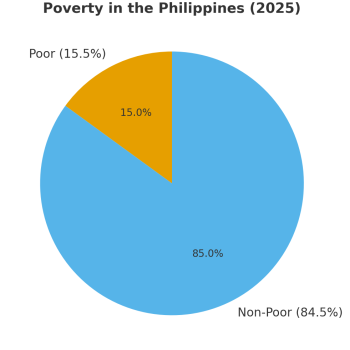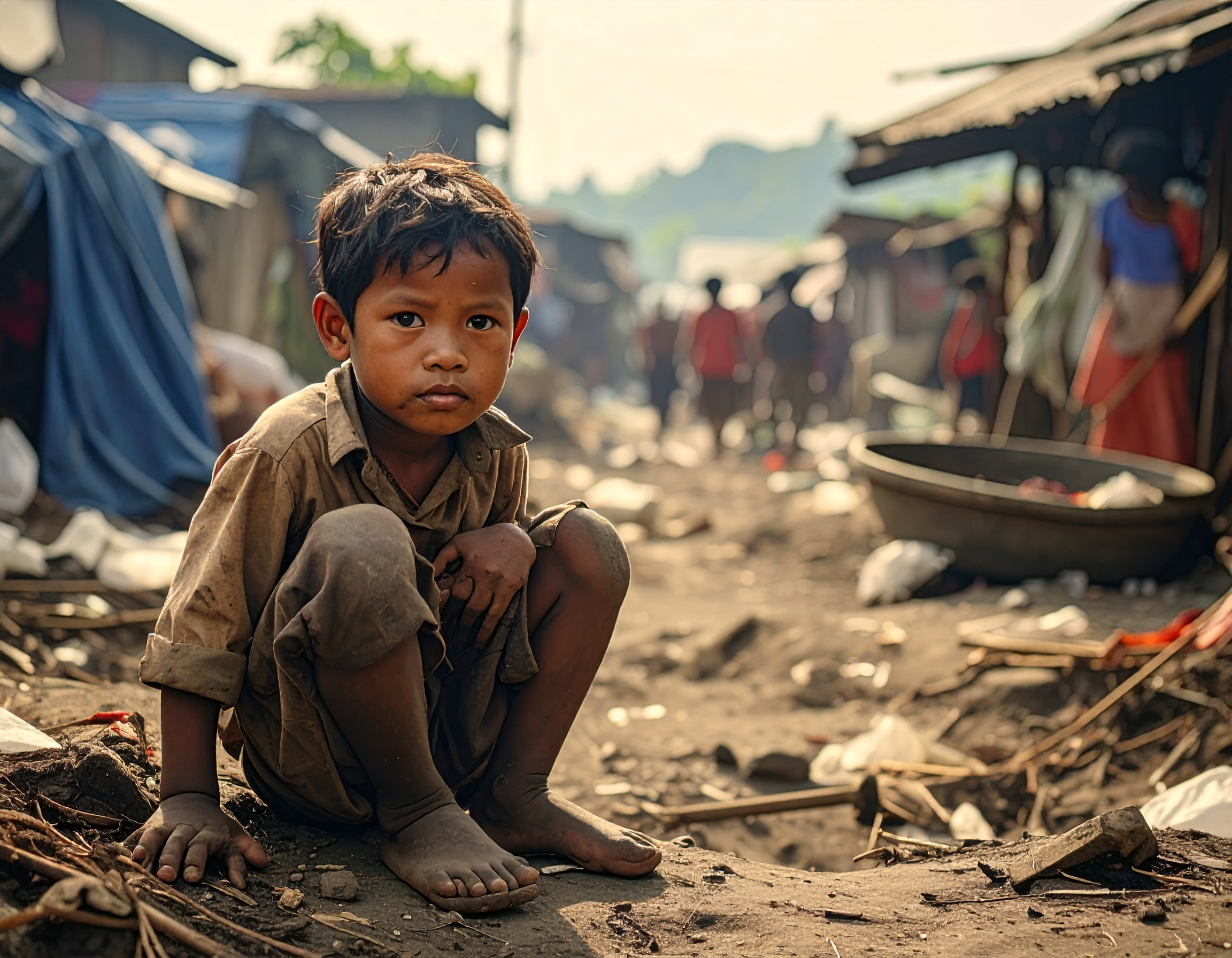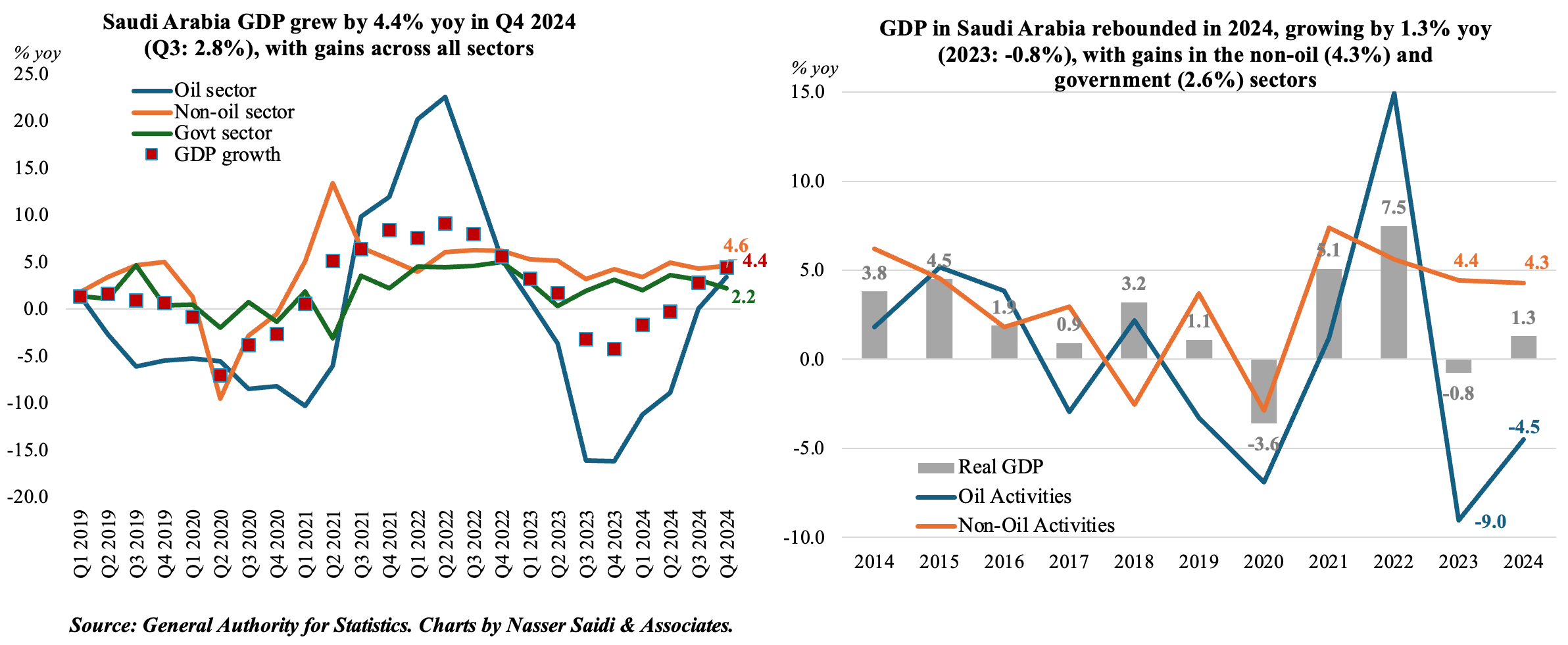As of 2025, the Philippines has an estimated population of 116.8 million people. Yet, 15.5% of them — nearly 17.5 million Filipinos — live in poverty. That is not a small fraction. It is a massive population equal to entire nations. These millions are not just numbers on a page; they are real people — mothers who skip meals so their children can eat, fathers forced to take multiple underpaid jobs just to make ends meet, and children who grow up thinking hunger and hardship are normal parts of life.
When this many people live in poverty in a country rich in natural resources and human talent, the failure is not on the people — it is on leadership. Poverty at this scale is not just unfortunate; it is a direct reflection of how politicians have managed the nation’s resources, policies, and priorities.

Politicians: Do Not Treat Public Office Like a Business
Being a politician is not a personal achievement, nor is it an entitlement. It is not a family business to be passed down, nor a badge of prestige to flaunt. Public office is a position of sacrifice, responsibility, and service. When politicians use their positions for personal gain, they betray not only the Constitution but also the millions who trust them with their future.
Every time a politician steals from public funds, they are not just committing corruption — they are stealing the chance of a poor child to go to school, denying families access to proper healthcare, and prolonging the suffering of those already at the bottom. Each peso wasted is a direct attack on the poor.
Accountability Must Be Demanded
Seventeen and a half million Filipinos living in poverty is not a statistic to be shrugged off. It is a loud, painful reminder that the government has fallen short. And politicians who treat their role as a game of power and influence must be held accountable.
Too often, leaders promise “change” during campaigns, only to forget their words once in office. Too often, political seats are treated as rewards for loyalty rather than platforms for service. Too often, the poor are used as campaign backdrops, only to be abandoned after elections. This cycle must end.
A Call to Real Leadership
The poor need more than speeches, handshakes, and photo opportunities. They need bold policies that create jobs, genuine reforms in education and healthcare, protection for workers, and programs that uplift the marginalized. They need leaders with vision, not politicians who only think as far as the next election.
The responsibility of politicians is heavy — and it should be. Leadership is not for the weak, the greedy, or the self-serving. It is for those willing to put people above power, service above self, and results above rhetoric.
Final Word
If 15.5% of Filipinos remain poor, then politicians should not pat themselves on the back for economic “growth” or infrastructure projects that do not reach the poor. Real success is measured by how many lives are lifted out of misery, not by how much wealth sits in government accounts or private pockets.
Seventeen and a half million poor Filipinos is a national shame — and it should weigh heavily on every politician who swore an oath to serve.
#Philippines #PovertyInPH #EndPoverty #LeadersForThePeople #ServeNotSteal #AccountabilityNow #PublicOfficeIsPublicTrust #NoToCorruption #RiseAbovePolitics #HelpThePoor #FilipinoLivesMatter #TrueLeadership #StandWithThePoor #GoodGovernance #NationBeforeSelf






 then choose "Install".
then choose "Install".